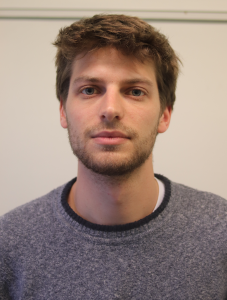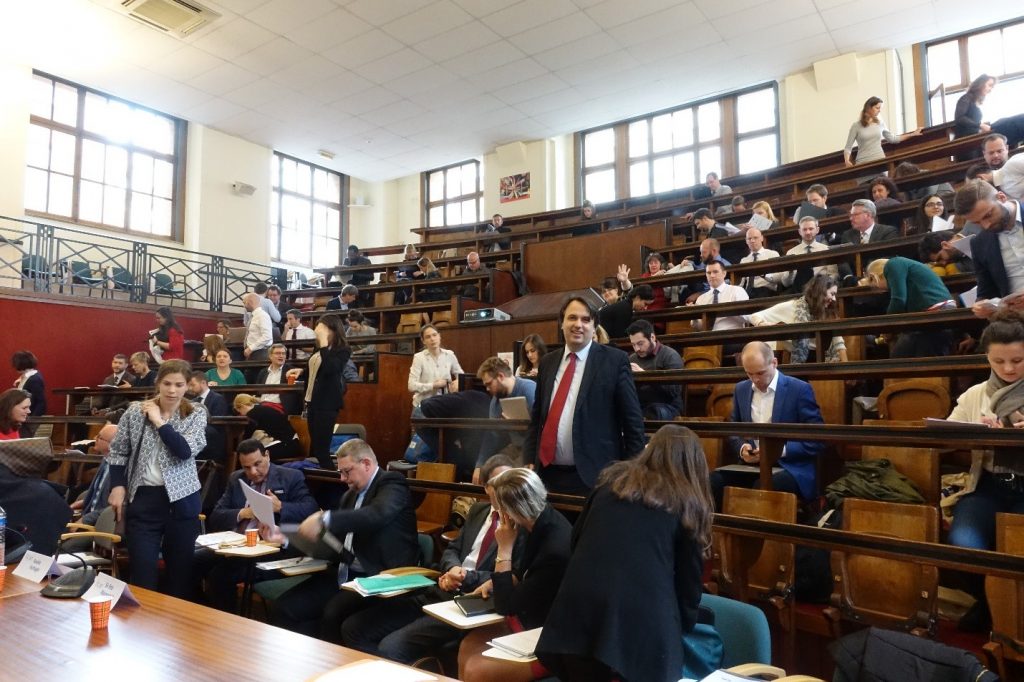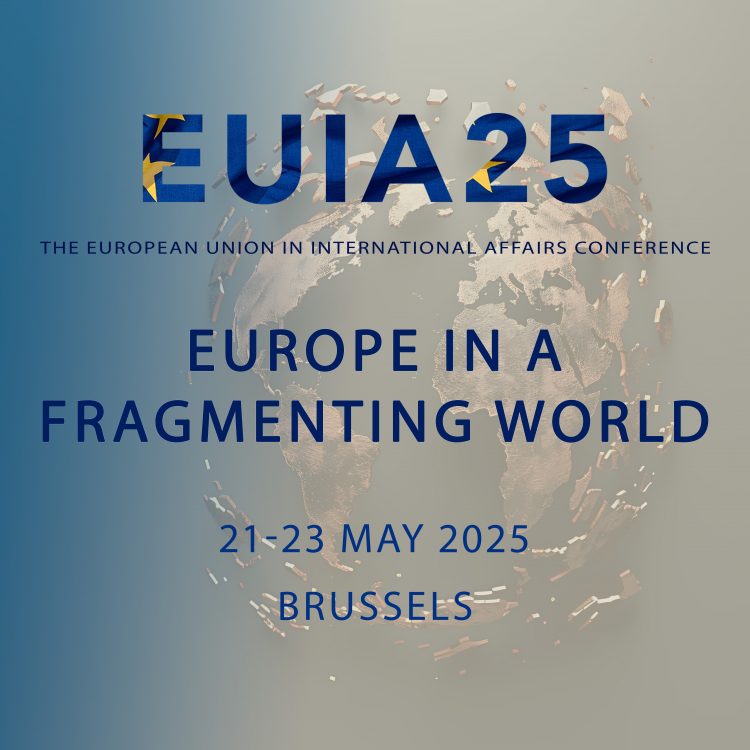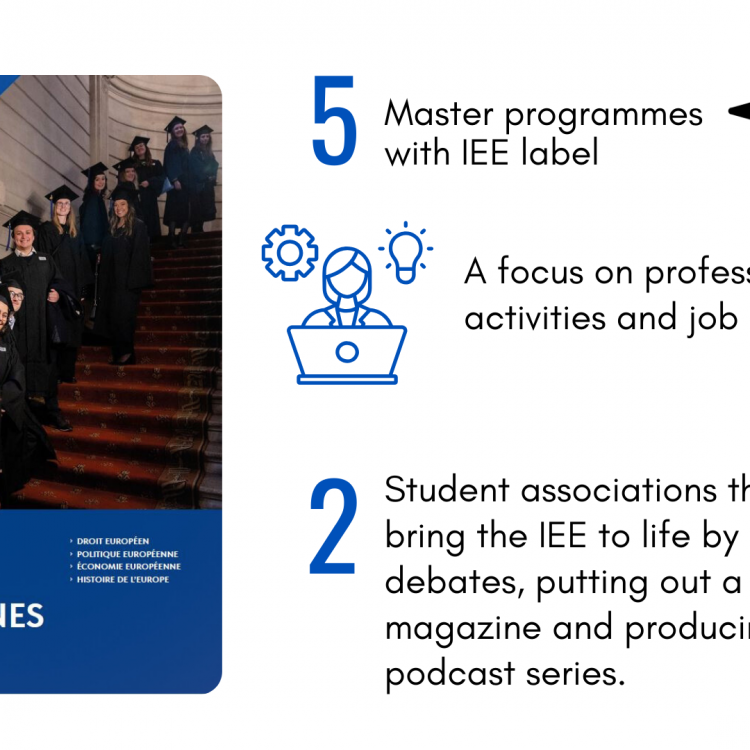 François Catteau is a Research and Coordination assistant at European Criminal Law Academic Network (ECLAN). He is an IEE-ULB alumnus from the Specilized Master in Interdisciplinary EU Studies.
François Catteau is a Research and Coordination assistant at European Criminal Law Academic Network (ECLAN). He is an IEE-ULB alumnus from the Specilized Master in Interdisciplinary EU Studies.
The Impact of Brexit on the EU Area of Criminal Justice
On April 25th and 26th 2019, the European Criminal Law Academic Network (ECLAN) held a conference about the future of the European penal area in the context of Brexit. What are the future perspectives on police and judicial cooperation? On which mechanisms the collection of evidence and the extradition of suspected criminals could be based between the UK and the EU after Brexit? What is the opinion of UK civil servants, practitioners of Europol and Eurojust and academics on the concrete impact of Brexit on EU criminal law? Will Brexit really happen?… There are many questions that were deeply discussed and debated in the prestigious auditorium of the Belgian Ministry of Justice.
Round 1
It was 9:30 on April 25th when Professor Anne Weyembergh and Chloé Brière gave the floor to the first guest speakers after introducing the current situation of the Brexit saga. Knowing that the negotiation stage has been extended until 31 October 2019, the discussions had to be based upon assumptions, but proved equally exciting.
As the warm-up was over, we could get into the substance regarding the future of police cooperation. The former president of Europol, Rob Wainwright, and Professor Saskia Hufnagel of Queen Mary University assumed the responsibility to set the scene of the various possible scenarios. Deal or no-deal, Brexit or no Brexit, the two speakers presented a very complete overview of the future relation regarding police cooperation between the UK and the EU.
After the coffee break, the discussions took a more practical turn, when the floor was given to Ms Hazel Cameron, member of the UK permanent mission to the EU. She bravely exposed all the work that has been done by the EU and the UK authorities, and faced criticism from Professors Cyrille Fijnaut and Paul Swallow, who pointed out the lack of preparation in the eventuality of a hard Brexit, especially on the field of police cooperation. Finally, Martin van Steenbrugge, a Belgian policeman, presented a concrete case that illustrated the absolute necessity of cooperation in criminal matters. This field-based perspective was highly appreciated by the audience and generated exciting discussions.
A dialogue between old friends
For this edition of their annual conference, ECLAN was delighted to welcome the Ministers of Justice from both Belgium and Luxembourg. Koen Geens and Felix Braz had known each other for a long time and seemed to be glad to meet again in Brussels. Unsurprisingly, they both sang from the same hymn sheet in the matter of Brexit during their speeches: Brexit will cause underestimated (by the Brexiters) damage for both parties and the consequences risk to be worst for the UK.
How to replace effective EU instruments of judicial cooperation?
The second session of the conference was dedicated to the impact of Brexit on the judicial cooperation between the UK and the EU. After short presentations of the (relatively dramatic) perspectives by Daniel Flore and Martijn de Grave, the discussions were focused on the emblematic European Arrest Warrant and the problematic of the collection of evidence in transnational criminal cases. Successively, the speakers repeated the importance of the European instruments in these domains and the crucial need for equivalent mechanisms in the future agreements between the UK and the EU.
At the end of the first day, the conference kept its promises in terms of debates, substance, and hypotheses. The audience appeared satisfied and ready to participate to the second round on Friday morning. Let’s switch off the lights for the night.
A time of uncertainty
On Friday, it was the turn of the actors of police and judicial cooperation within the EU, namely Europol and Eurojust. Academics and the secretary of the European Judicial Network also had the opportunity to expose their opinion and present the role of these actors during this historical period of time. What could be done, what has been done and what can still be done by these actors to anticipate all the scenarios? This was mainly the content of the speakers’ interventions for the first two panels of the day.
The final words of the conference were let to a roundtable composed by academics, mainly from Britain, with different points of view regarding Brexit. The debates were raging and the time was running out. Professor Rosaria Sicurella, chair of this roundtable, finally ended the discussions and gave the floor back to Professor Anne Weyembergh to close this 15th Eclan anniversary conference.
Panel after panel, speaker after speaker, a constant during the conference was “We do not know” what will happen with Brexit. In this time of uncertainty, the only possible way for speakers to guide their interventions was to stick to different possible scenarios, what they brilliantly accomplished.
“Knowledge is an unending adventure at the edge of uncertainty” (Jacob Bronowski)
You are not yet familiar with Eclan activities? Please, come and visit us on http://eclan.eu/en
You can also register to our newsletter here and follow us on Twitter, Facebook and Linkedin!
See you there!




